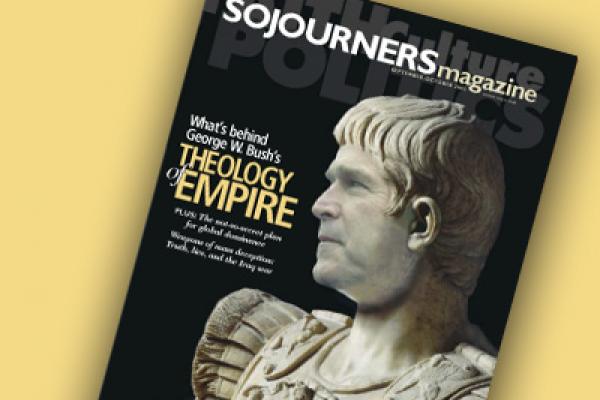In October 2002, in Colorado, three Catholic nuns entered a missile site swinging hammers to disarm a nuclear warhead. Then they painted a cross on the silo with their own blood. In November 2003, in Miami, thousands showed up to resist the ministerial meetings on the Free Trade Area of the Americas. North Americans, taking the lead from their Southern neighbors, are mobilizing against trade agreements that grant rights to corporations and steal them from human beings. I hear in these stories a persistent resistance. I hear the story of Exodus becoming relevant once again.
In the book of Exodus, the empire of Egypt is condemned. It is greedy, fearful, production-driven, bigoted, sexist, exploitative, violent, and murderous. This description of Pharaonic Egypt is strikingly similar to modern global capitalism where many First World Christians sit near the top of a pyramid whose base is 27 million slaves worldwide. Theologian Robert McAfee Brown put it quite simply: "Where we fit in the Exodus story is among the functionaries in Pharaoh's court rather than among the workers in the slave labor camps."
But hidden in a tradition that is addressed to the oppressed and that scathingly describes the society of the elite, there are stories that First World Christians need to read. These stories may provoke and trouble us, but will, we can hope, inspire us to act. They are stories of Egyptians who choose solidarity with slaves. Significantly, many of the Egyptians who find a way to resist empire are women.
Read the Full Article

